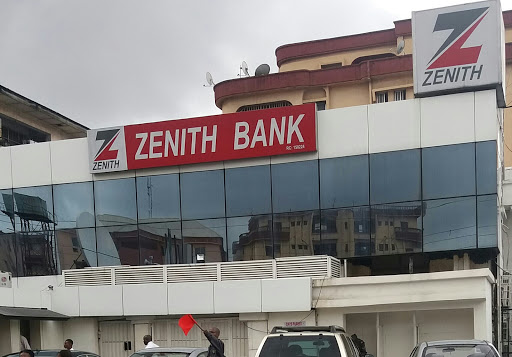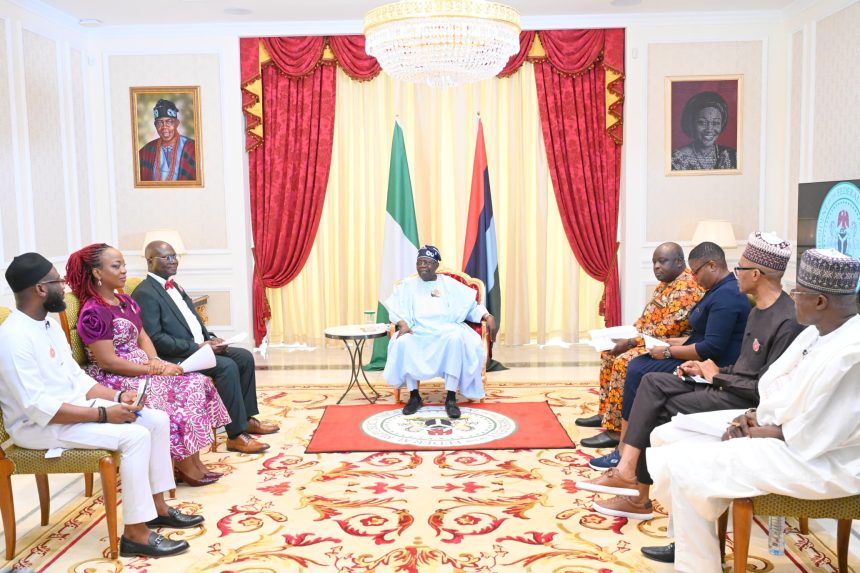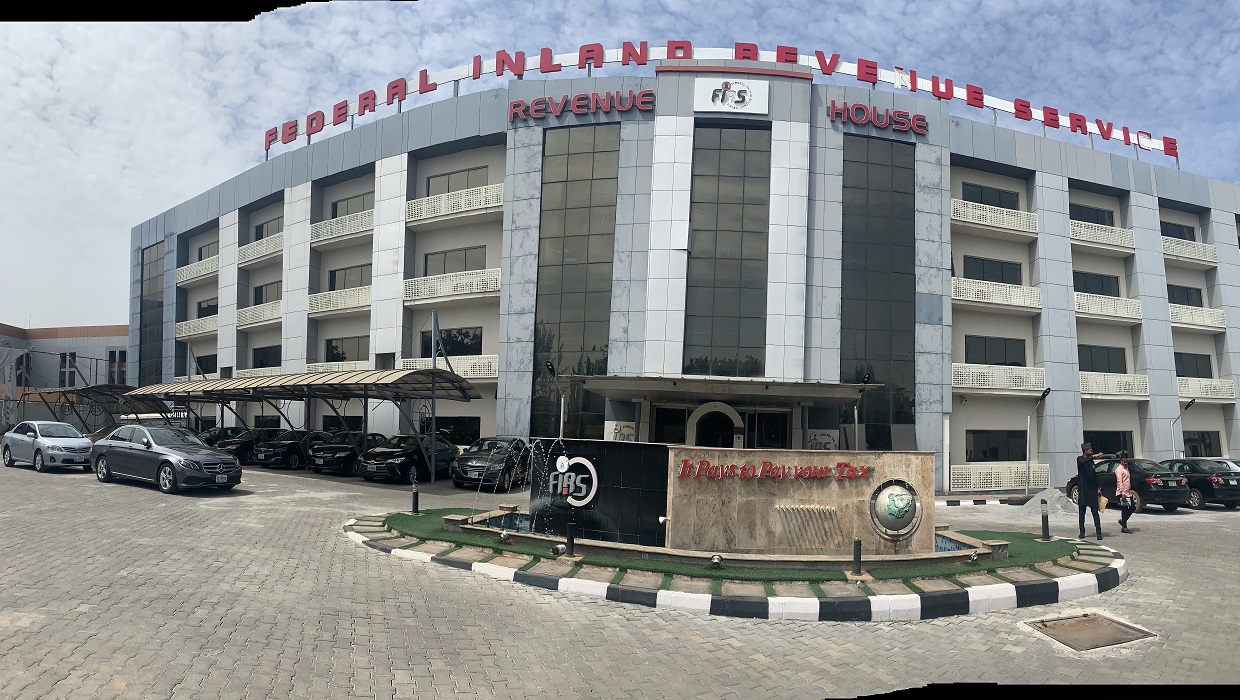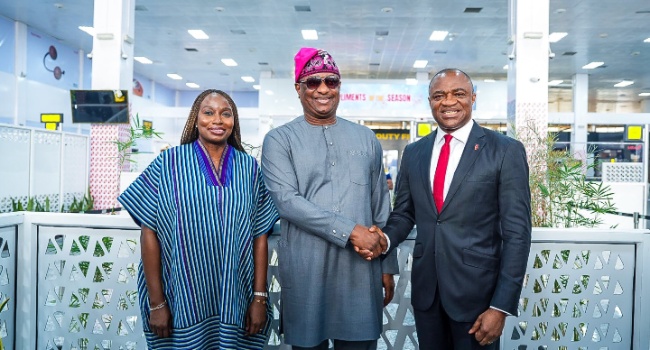Business
Zenith Bank named most sustainable bank in Nigeria in the International Banker Awards 2024

Zenith Bank Plc has been named the “Most Sustainable Bank, Nigeria” in the International Banker 2024 Banking Awards, retaining the title for the second consecutive year.
Commenting on the award, the Group Managing Director/Chief Executive Officer of Zenith Bank, Dame (Dr.) Adaora Umeoji, OON, said: “We are deeply honoured to be recognised as the Most Sustainable Bank in Nigeria for the second time in a row.
This prestigious award underscores our steadfast commitment to sustainability and reinforces our belief that responsible banking is essential for long-term success and societal impact.”
She dedicated the award to the Founder and Chairman of Zenith Bank Plc, Dr. Jim Ovia, CFR. She lauded the Bank’s stakeholders for their commitment and unwavering support in ensuring that Zenith remains a highly successful institution.
She said, “This remarkable achievement is a testament to the visionary and impactful leadership of our Founder and Chairman, Dr. Jim Ovia, CFR. His exceptional foresight and dedication have been the cornerstone of our success.
His ability to inspire and guide with strategic acumen has been instrumental in steering Zenith Bank to new heights. Along with the strategic guidance of our esteemed Board members, the unwavering commitment of our ever-diligent staff, and the steadfast support of our loyal customers, Dr. Ovia’s leadership has been pivotal in transforming our sustainability initiatives into a reality.
We owe this success to his relentless pursuit of excellence and his deep-seated commitment to redefining the banking landscape in Nigeria.”
This recognition reaffirms Zenith Bank’s position as a trailblazer in sustainable banking practices, setting a benchmark for excellence within the Nigerian banking industry and beyond. The Bank has been a leader in monitoring and reporting sustainability impact. Since becoming the first Bank in Africa to publish a stand-alone sustainability report in accordance with the GRI Standards: Core Option in 2016, Zenith Bank has consistently published assured stand-alone sustainability reports. The Bank is one of the few institutions in Nigeria that tracks its carbon emissions using a certified tool built on the internationally recognised Greenhouse Gas (GHG) Protocol.
Zenith Bank is deeply committed to environmental, social, and governance (ESG) values, subscribing to the Triple Bottom Line principle, which encompasses People, Planet, and Profit. As a leading financial institution that services various sectors of the economy, the Bank considers Environmental and Social (E&S) risk management critical to its sustainability strategy.
Zenith Bank’s track record of excellent performance has continued to earn the brand numerous awards, including being recognised as Best Bank in Nigeria for the fourth time in five years, from 2020 to 2022 and in 2024, in the Global Finance World’s Best Banks Awards; the Best Bank for Digital Solutions in Nigeria in the Euromoney Awards 2023; being listed in the World Finance Top 100 Global Companies in 2023; being recognised as the Number One Bank in Nigeria by Tier-1 Capital for the 14th consecutive year in the 2023 Top 1000 World Banks Ranking published by The Banker Magazine; Best Commercial Bank, Nigeria, for three consecutive years from 2021 to 2023 in the World Finance Banking Awards; Best Corporate Governance Bank, Nigeria in the World Finance Corporate Governance Awards 2022 and 2023; Bank of the Year (Nigeria) in The Banker’s Bank of the Year Awards 2020 and 2022; Best in Corporate Governance Financial Services Africa for four successive years from 2020 to 2023 by the Ethical Boardroom; Most Sustainable Bank, Nigeria in the International Banker 2023 Banking Awards; Best Commercial Bank, Nigeria and Best Innovation in Retail Banking, Nigeria in the International Banker 2022 Banking Awards.
Additionally, the Bank emerged as the Most Valuable Banking Brand in Nigeria in the Banker Magazine Top 500 Banking Brands 2020 and 2021; Bank of the Year 2023 and Retail Bank of the Year for three consecutive years from 2020 to 2022 at the BusinessDay Banks and Other Financial Institutions (BAFI) Awards.
Similarly, Zenith Bank was named Bank of the Decade (People’s Choice) at the ThisDay Awards 2020, Bank of the Year 2021 by Champion Newspaper, Bank of the Year 2022 by New Telegraph Newspaper, and Most Responsible Organisation in Africa 2021 by SERAS.
Published by Finance Publishing Limited, the International Banker Magazine, United Kingdom, is a leading global source of authoritative analysis and opinion on banking, finance and world affairs. Its influence, integrity, accuracy and objective opinion have earned it global recognition.
The International Banker Awards strive to recognise the most worthy financial institutions around the world – those not just doing their jobs well but exceptionally well – those operating at the industry’s cutting edge and setting new performance levels to which others will aspire.
The 2024 Banking Awards focused on various criteria, including the provision of much-needed capital for economic growth, cutting-edge innovation to enhance security and efficiency, commitment to sustainability and ESG principles, as well as intelligent investing to maximise profits and shareholder value.
Business
Student loan scheme is part of anti-corruption efforts, says Tinubu

President Bola Tinubu says Nigeria’s new student loan regime could be considered an anti-corruption mechanism.
Tinubu was speaking about his government’s anti-corruption efforts during a presidential media chat that aired on Monday night.
He was asked if he considers anti-corruption an integral element among his governance priorities.
Tinubu said any policy intervention that aims to address the driver of corrupt practices could be considered anti-corruption.
“Corruption, in all its ramifications, is bad. But first, you must pay enough attention to its causes,” the president said.
“Why are the people corrupt? Lack of social amenities, lack of funding for their children’s education. There are so many anti-corruption mechanisms that you can put in place to help the people not be corrupt. Pay them good living wages.
“I have moved from 35,000 to 70,000. To me, that’s anti-corruption. I have given more money to the state and local government levels. I have been transparent with my earnings. Every month, there is a publication on how much this country is making.
“The ability to stem corruption is part of the instrument of the EFCC. That is why they are discovering all sorts of inefficiencies in the system, blocking all the loopholes where anybody can just game the system. That is part of anti-corruption.”
Tinubu said enabling equitable access to tertiary education through a loan scheme is just as important in the anti-corruption struggle.
“The removal of subsidies is also anti-corruption. It is very difficult to say you would eliminate it. You can only reduce it to the barest minimum. Help the people grow. Help them with the education of their children. Our student loan is part of anti-corruption,” he said.
“No parent should lament how to encourage their children in university education. Today, it’s working for a larger part of the population. The society is moving from illiteracy to literacy.
“I enjoy debate on what type of courses are being offered in the university these days to improve science, knowledge, and technology. We continue to work on it. We’re not taking our eyes off these serious matters.”
Business
APPLY: FIRS begins recruitment of senior managers, directors

The Federal Inland Revenue Service (FIRS) has begun its recruitment exercise for experienced professionals to fill specialised positions in the organisation.
Announcing various vacant roles on Monday, the FIRS said the recruitment exercise is part of its consolidation strategies.
The advertised positions include assistant manager and deputy manager roles in tax (investigation), PRS (research), public relations, and ICT (cybersecurity and AI management).
Other available roles are assistant manager and deputy manager in PRS (risk management), assistant manager and deputy manager in legal, and senior manager and assistant director roles in tax (audit).
“Applicants must have qualifications and relevant professional certificates as specified in the positions they are applying for and must also fulfill the following requirements,” the agency said.
“Applicant must possess Bachelor’s degree/HND with at least second class lower/lower credit.
“Applicant must have completed NYSC not later than 31st December 2017.
“Applicant for the position of assistant manager and deputy manager must not be more than 40 years of age while senior manager and assistant director must not be more than 45 as at 31st December 2024.”
The revenue agency said candidates must possess strong leadership and management skills, team spirit and ability to effectively delegate, interpersonal and communication skills, and strong Analytical skills.
“Knowledge of the Nigerian tax laws and appreciation of their application and understanding of the regulatory framework within which the FIRS operates,” the FIRS said.
“Knowledge of business/industry environment within which taxpayers operate.
“Ability to work as a regulator with the courage to ensure full compliance with laws.
“Interested candidates should apply via official FIRS career portal: careers.firs.gov.ng and or FIRS verified social media handles.”
The FIRS said the application portal will open on December 23, 2024, noting that the deadline for submissions is January 11, 2025.
The service advised applicants to carefully review the eligibility criteria before applying to ensure they meet all requirements and understand the qualifications needed for successful selection.
Business
UBA GMD calls for public-private partnership to accelerate economic growth

Oliver Alawuba, group managing director (GMD) and chief executive officer (CEO) of United Bank for Africa (UBA), has called for public-private partnership (PPP) to accelerate economic growth.
Alawuba spoke on December 20 during the launch of the newly renovated departure section of the Murtala Muhammed International Airport (MMIA), Lagos, refurbished by UBA.
According to a statement on Sunday by the bank, the project, which signifies a transformative moment in Nigeria’s aviation sector, shows UBA’s commitment to national development, highlighting the immense value of strategic PPPs.
The ceremony was attended by stakeholders, including Festus Keyamo, minister of aviation and aerospace development, and Olubunmi Kuku, managing director of the Federal Airports Authority of Nigeria (FAAN).
Alawuba commended the collaboration that led to the execution of the project, emphasising the need for public and private institutions to come together to build and revamp the nation’s assets.
“This renovation is a testament of UBA’s belief in the transformative power of investing in national assets. By modernising our airports, we not only enhance infrastructure but also position Nigeria as a global hub for tourism, trade, and investment,” he said.
“Public-private partnerships like this demonstrate what can be achieved when we unite for a shared vision of progress and investing in infrastructure catalyses economic growth, improves travel experiences, and creates opportunities across various sectors of the economy.
“The commissioning of the renovated departure section serves as a reminder of what strategic partnerships can achieve in driving national development and elevating Nigeria’s global standing.”
-

 News1 week ago
News1 week agoNaseni’s Executive Vice Chairman, Khalil Suleiman Halilu, Named 2024 Winner Of Daily Global Newspaper Conference Series Award For Science, Technology, Innovation, And Infrastructure
-

 Relationships7 days ago
Relationships7 days ago‘I wish I met you before the wrong person’ – says Portable’s baby mama, Honey Berry, as she flaunts new lover
-

 Business6 days ago
Business6 days agoPoS operators increase withdrawal charges, blame electronic levy, cash scarcity
-

 News1 week ago
News1 week agoLagos state government shuts Lord’s Chosen Church, businesses across Lekki, VI, others over noise, environmental infractions
-

 Entertainment7 days ago
Entertainment7 days agoBovi speaks against beating children, reveals why his family relocated to UK
-

 Entertainment1 week ago
Entertainment1 week agoPastor Enenche’s daughter, Deborah, husband welcome baby boy two years after marriage
-

 Entertainment6 days ago
Entertainment6 days agoRaheem Sterling’s ex-girlfriend, Tabby Brown dies after BBL surgery
-

 Sports7 days ago
Sports7 days agoVinicius beats Rodri to win 2024 FIFA men’s player of the year award


















